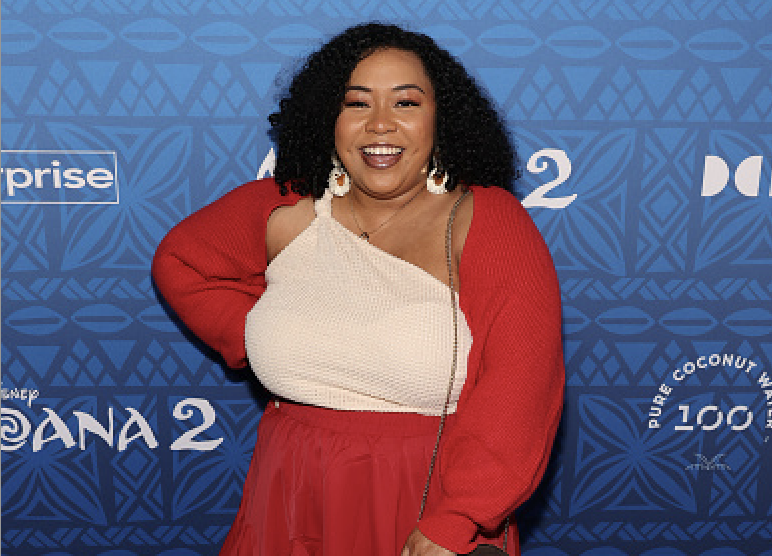Overview:
Research finds that Asian American, Black, and Hispanic people were more likely to report having food allergies than white people, and no one knows exactly why. Researchers found the trend is strongly tied to household income.
As the cofounder of Black Girl Disney in 2018, online influencer Dominique Brown was an obvious choice to attend a Dec. 5 holiday event in Los Angeles. As one of the 20 million people with food allergies, she purportedly knew to ask an obvious question: Does the food include peanuts?
Not long after food was served however, the deejay suddenly stopped the music and urgently asked if anyone at the event had an Epipen — a device that delivers life-saving medicine to someone having a dangerous allergic reaction. That day, it was Brown.
Within hours, the Disney superfan with dimples and a bright smile, known as Domo to her friends, was dead.
RELATED: Is Our Food System Safe?
The tragedy brought to light an overlooked medical issue: the number of severe allergic reactions to food has been climbing over the last two decades, and Black people account for a disproportionate number of those affected. Studies also suggest the rise in severe reactions is most prevalent among those with lower incomes.
“The prevalence of self-reported food allergies has been increasing in recent decades, especially among [Black] children. Black children have been reported to have higher rates of food allergies compared with [White] children in the U.S.
Around 200 people die from allergic reactions each year.
“Less is known about racial differences in [food allergies] among adults, although the limited available evidence suggests that the differences reported in pediatric samples may also exist among adults,” the research says.
According to reports, Brown asked whether food at the event contained the allergan and she was told, no. But a friend who has launched a change.org petition stemming from the tragedy said Brown was known to be allergic to peanuts.
Black people account for 15.5% of those with peanut allergies.
The Department of Agriculture says the nine leading causes of food allergies identified are milk, eggs, fish, shellfish, tree nuts, peanuts, wheat, soybeans, and sesame. But severe allergic reactions can be triggered by latex, some medications, animal dander, or bee stings. About 33 million people in the U.S. have severe allergies, and around 200 people die from allergic reactions each year.
If consumed or exposed to those allergy triggers, a person can experience anaphylaxis, a condition that includes a sudden drop in blood pressure, difficulty breathing, nausea and vomiting. If not treated immediately, severe anaphylactic shock can be fatal.
More than 10% of adults, and 8% of the nation’s children, are allergic to several kinds of foods. A 2021 study found that incidences of peanut allergy reactions have increased in the last 20 years. Also, Black people account for 15.5% of those with peanut allergies although they are just 11.6% of the U.S. population.
RELATED: Black Americans Still Have Worse Health. Here’s Why
Research published just last year finds that Asian, Black, and Hispanic people were more likely to report having food allergies than whites. No one knows exactly why allergies are on the rise among people of color, but researchers found this trend is strongly tied to household income.
“The prevalence of self-reported or parent-reported food allergies was lowest within households earning more than $150 000 per year,” according to the study.
Earlier this year the FDA approved the drug omalizumab, sold as Xolair, to treat moderate to severe allergic asthma in adults and adolescents. The drug differs from emergency medicines like EpiPens; Xolair is for use in people aged 1 year and older to reduce the risk of allergic reactions to peanuts and other foods over time.
Research found omalizumab can also significantly reduce the risk of food allergy to peanuts and other foods after about four months of treatment. But Xolair does not cure food allergies, so patients need to avoid foods with allergens in them.
RELATED: Rising Child Mortality Rate Hits Black Children Harder
In August, FDA approved the neffy epinephrine nasal spray, which is the first allergy emergency treatment that, unlike EpiPen, doesn’t have to be injected. The nasal spray from ARS Pharmaceuticals can treat anaphylaxis in people weighing at least 66 pounds
Meanwhile, those around her are still processing Brown’s death.
In a Dec. 13 statement posted on Instagram, BoxLunch, which sponsored the charity luncheon, said it was “devastated” by the young influencer’s death. It promised to “do everything possible to support Dominique’s family, her loved ones, the Collective and our team members during this painful time.”
Brown’s friends have launched an online petition urging more protections for people with food allergies. They want venues, restaurants, and other establishments that serve food to take more precautions, and keep epipens on hand.
“Domo’s death was preventable,” according to the petition. “Her story is not unique, and it’s time for change.”




